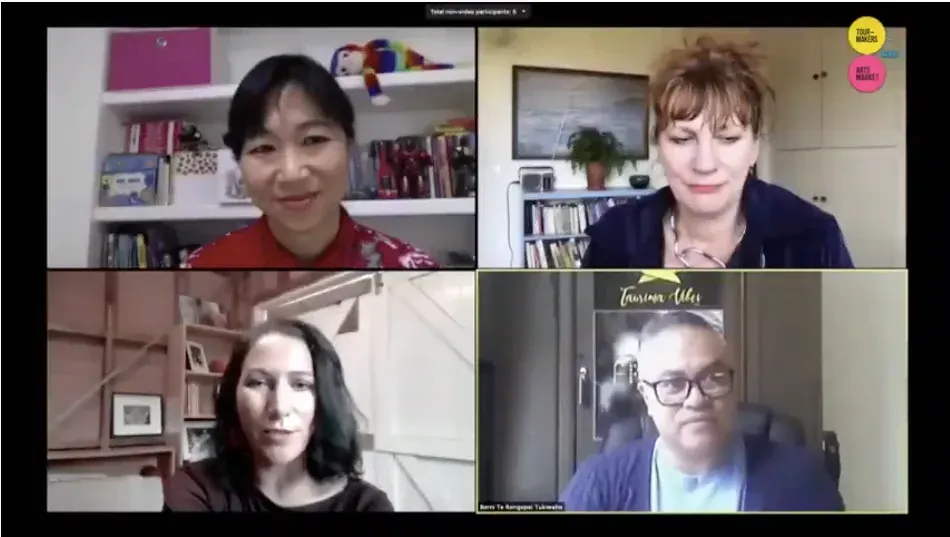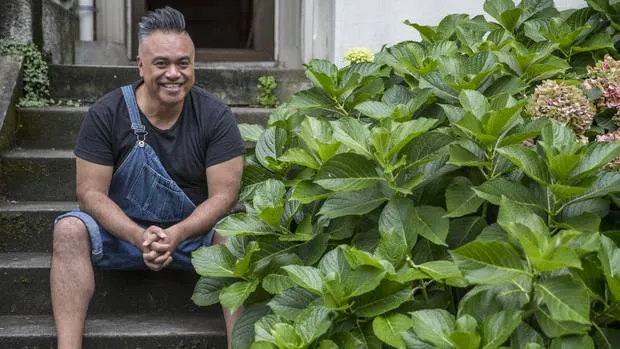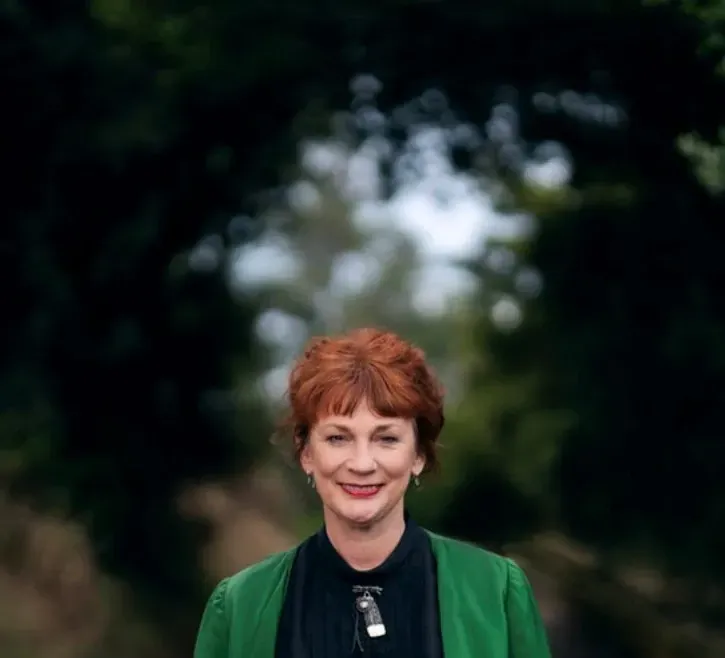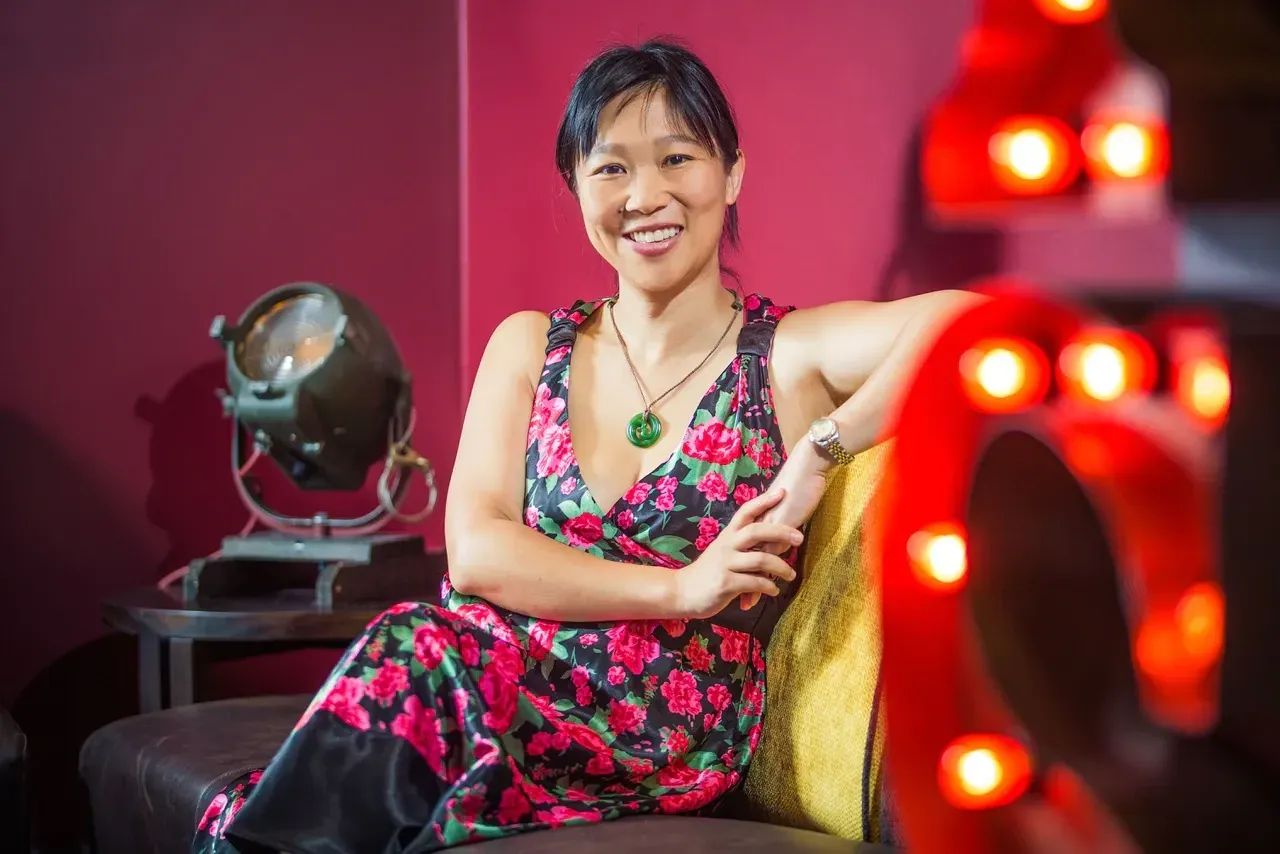Are You Ready for Reinvention?
Written by

The past four weeks have seen a fundamental shift in the way we exist, interact and work as individuals, communities and as a nation. Everyone has been faced with the realities of a ‘new normal’ that is as varied as we are.
Aotearoa will be shifting down to Level Three on 27 April. This marks us beginning to truly lift the veil on what a post-COVID-19 New Zealand might look like.
With much of the world in lockdown, it has given many the chance to pause and reflect on economic, societal, power and privilege structures pre-COVID. Within these forward-thinking bubbles, there is a swell of support to use this temporary pause as an opportunity to reset the world as we know it. To make meaningful, lasting change that extends beyond weekly clapping or random acts of kindness.
We have seen these discussions beginning to crop up throughout the country, including our arts sector. The weekly PANNZ hui has been a hotbed for such topics, arguably peaking with Monday’s panel.
Dolina Wehipeihana (Ngāti Tukorehe, Ngāti Raukawa) took over from Jo Randerson as moderator with aplomb. “Level Four has had a considerable impact on many of us as individuals, as whānau. Our businesses and the way we operate in the arts has been impacted.
“Now we’re paused for transition, which seems like a good time to discuss hauora (mental, physical and spiritual health), wellbeing and how to best move forward as a whole,” said Wehipeihana as she outlined the hui.
Borni Te Rongopai Tukiwaho Credit: Peter Meecham NZ Herald
"We're Going Through Lots of Different Negotiations"
Wehipeihana was joined by Borni Te Rongopai Tukiwaho (Te Arawa, Tuhoe, Tūwharetoa) director of Auckland Fringe and kaiwhakahaere and founder of Taurima Vibes; Shona McCullagh, artistic director of Auckland Arts Festival and Renee Liang, poet, playwright, paediatrician, medical researcher and fiction writer.
Tukiwaho offered some practical advice when approaching mental wellbeing. “It’s our fourth week so we’re going through lots of different negotiations...a lot of people’s irrational fears come from uncertainty...so one of the good things I’ve been able to do [during the lockdown] is to hunker down and research, and there’s a lot of resources available to [the arts sector].
“I would suggest if you have a specificity, figure out where the legitimate places are to go - by legitimate, I mean places who have done their research and they will let you know where other places will be, such as the [New Zealand] Mental Health Foundation, Health Promotion….specific to [the arts] there is MusicHelps or you can hit up the AA(e)-C(19)C Facebook page or the PANNZ website.”
Challenging the Status Quo
McCullagh found herself in the thick of the ramifications of COVID-19 as she transitioned into her role at Auckland Arts Festival.
“I saw a slow tsunami of 80 events cancelled,” she reflected. “But I was utterly inspired by how the [arts] sector responded - its strength, resilience and our innate desire to connect and help each other.
“I believe that we have the capability to create a better outcome if we work collectively and collaboratively [to] find a shared sense of purpose rather than what sets us apart.”
McCullagh outlined this across four main points - change and how that was impacting our wellbeing, the difference between the response and recovery phases, the different types of disruption caused by COVID-19 and finally how the arts might approach a new world and a new way of working.
She utilised a modified version of Elizabeth Kubler-Ross’s support mechanism for the phases of grief, which reflected the common patterns of behaviour during significant periods of change for people and organisations. “During lockdown it’s been a good framework to track where I am” she explained.
The four phases - that reflect how morale and productivity might work in times of stability and chaos are;
1. Status Quo
2. Resistance
3. Exploration
4. Commitment
“Status Quo represents relative order - although, for many, the status quo has meant discomfort and satisfaction,” says McCullagh.
“At the Resistance phase we were addressing our feelings in the face of change and discomfort because we feel safe when we understand and know the world - there was an immense pressure to solve the problem.
“The third phase is us starting to wonder how we might behave in this new future - there is a sense of curiosity and exploration. The community light begins to reactivate and there is a search for answers; redefinition of roles, functions,questioning the behaviour of organisations.. To swing between phases two and three are completely normal” she adds.
“Phase Four is a new future - it’s uncertain, there’s still fog around it. But within each of us, there is a new opportunity to reimagine what the world might look like.”
Shona McCullagh, Credit: John McDermott
A Brave New World
A theme of unity in a brave new world became the heart of McCullagh’s discussion. “We can lean forward together” she enthused when discussing the response and recovery phases post COVID-19.
“I want to applaud the swift action of both the Government and Creative New Zealand to assuage immediate financial distress..the short and medium long term actions and outcomes of recovery is that they’re a time to imagine and dream a variety of scenarios,” she said.
“There’s a saying ‘when the winds of change rage, don’t build a shelter - build a windmill'. We’re dancing with the winds of change. [The arts] sector is fluid and responsive which is all we can be at the moment; all we can control is how we behave and respond to the winds of change.”
The disruption caused by the likes of COVID-19 “brings out the strengths and weaknesses across all sectors - it acts as an amplifier. [COVID-19] is an equaliser in so far as no one is immune but it utterly exposes our inequalities across our communities, our sectors, our societies” says McCullagh.
“I hope the arts sector can be a powerful force to help create more equality in how we respond” she continues.”[COVID-19] has highlighted a series of disruptions that are obvious and those that are more insidious and have been occurring over a long time.
“These have been due to technological changes, an environmental crisis and the radically shifting demographics of audiences, languages and communications due to mass migration. Racism, capitalism and colonialism are just three other distinct and shameful disruptions of disruption.”
“Capitalism has rewarded individualism over community, profit over shared benefit” she continues. “Artists have been shifted to the margins, rather than held as central and valued as prophets of truth and the unravellers of the mystery of life.
Yet [in our arts organisations] we’ve been led to shoehorn these entities into business models guided by boards of business people who must know best.”
Regenerative Thinking
McCullagh suggests that the anecdote is “to create a more regenerative way of being that considers the health of our entire sector.
“We need to create systemic change...as artists we want to create work that is a transformative experience but also respects the environment.” She elaborates further, “we need to question and I believe reject where our money to produce our art comes from, which is largely gambling.
“This hardly aligns with our core purpose of wellbeing and inspiration...artists should be seen as vital spokespeople in Aotearoa and now is an opportunity to rebalance the domination of sport in the media and to shift the arts from being ‘individual to the collective.’”
Part of this includes changing funding models. “The arts sector has to change - it’s valuing metrics rather than human impact - we can refashion our frameworks and become an ecosystem that is adaptive, resilient and embraces the collective rather than competitive behaviour and upholds a respectful and equitable treatment of artists where every voice is heard,” she says.
“Funding assessments should no longer rely on data points but rather truth and beauty and the meaning that was created.”
McCullagh acknowledged that the problem was “it’s all very easy to say this and very hard to make shifts in our behaviour. But I believe our sector fails as a whole if we don't work toward advancing our work together in a healthy state… this is not a criticism of what has been either, but a true opportunity of what our future can be.” she asserted.
“Neoliberalism is counter to regenerative thinking and our indigenous people have so much knowledge in regenerative practice and collective knowledge about health and wellbeing. It is my hope that we can take the complexity of the situation and the arts sector can refine it to shared kaupapa... so it will be a powerful tsunami of love.”
Renee Liang Credit: Jeff McEwen
Make Artists More Valued
Renee Liang was an invaluable speaker, offering her insight as both a medical and artistic practitioner.
“Artists are adaptable, flexible changemakers,” she said. “Medical training is much like an apprenticeship in the arts - we are training to be able to jump in and work it out.”
Reflecting on McCullagh’s words, she said, “I kept thinking ‘you can build a windmill or grow wings’ - we are going to be able to grow from this...as Borni said, there are lots of resources to help us through and there are lots of opportunities - there are a lot of artists creating in health spaces.”
She acknowledged McCullagh’s use of the grief model, using it in relation to her own graph that outlined the four waves of the Health Footprint of a Pandemic. She stressed that “it is alright to move between phases - don’t worry if your space looks different to someone else - it’s okay, this is normal and part of being human.”
“There’s opportunity to challenge existing models, but also for arts practitioners to embed or strengthen new models.
“Midwives bring new lives into the world - and in a way, artists are midwives bringing a new way of thinking into the world through ourselves but also through all the training along with it. We have a key role to play in a new society’s ecosystem. We need to challenge how we get [art and artists] to be valued and recognised; how do we become as respected as medical professionals?” Liang questioned.
New Model
Audience questions focused on how the sector could “step away from the ‘prove yourself’ model to access funding and action points or suggestions for stepping away from the capitalist structure.”
McCullagh responded with a call for an “attitude change towards the arts sector’s obsession with data which is a capitalist structure.
“We need to have discussions with our funders about the amount of time we’re all spending measuring that data and reporting better spent working with our community; to re-swing (sic) the weight that played on numerical measurement to the depth of impact on a human being.
“We need to institutionalise innovation and innovative thinking as key… a recalibration of the way our sector’s leaders view artists. I want to get rid of old conversations of artists being ditzy or flaky.”
Tukiwaho pointed out that “the arts space is built on colonised systemic theoretical space - every time we are putting hearts, souls, artists, people we are trying to support that barrier is there automatically. We are continually shifting our whole lives - we are constantly having to re-negotiate what we’re doing as we exist.
“As artists, our brains and art changes with the world as it changes around us. With a really core structure like colonialism, there is an opportunity to dismantle it and look at what is and isn’t working within that systemic space and to speak to funders - to go to them as a unit and say ‘this is not working for us as a whole landscape.’ How is that something we cannot address when it impacts all of us? Now is the time to reassess how we work and view our own roles, structure and hierarchy.”
This PANNZ Hui can be viewed in its entirety here. The next planned hui is Monday, 4 May, 11am.


